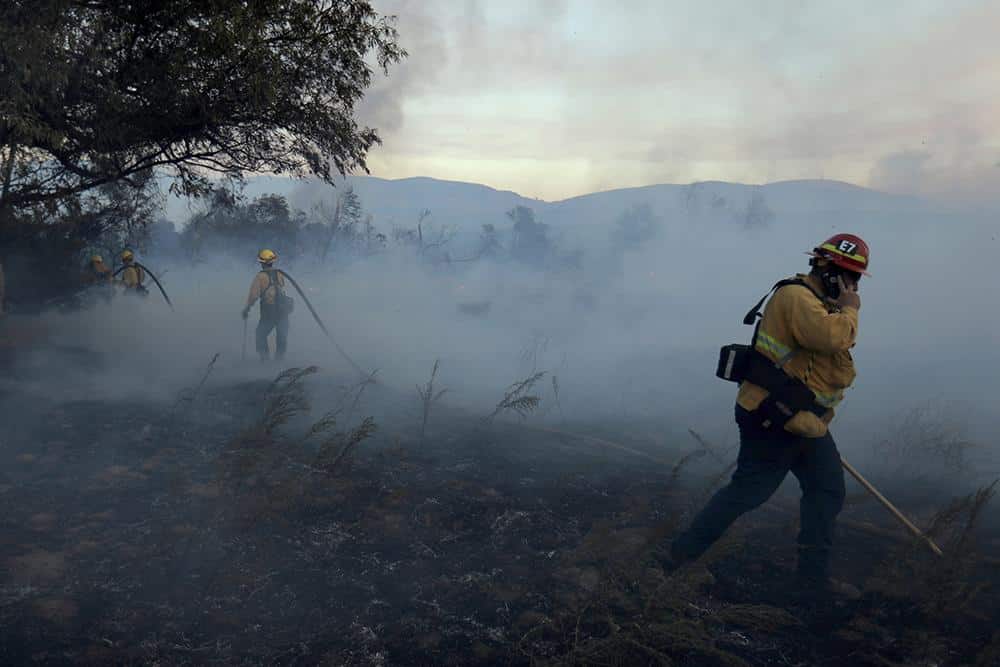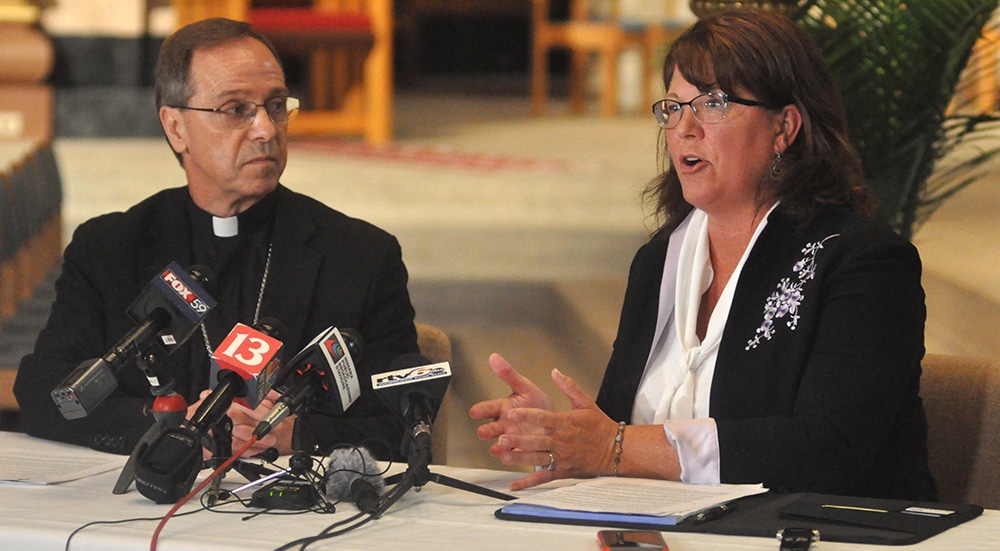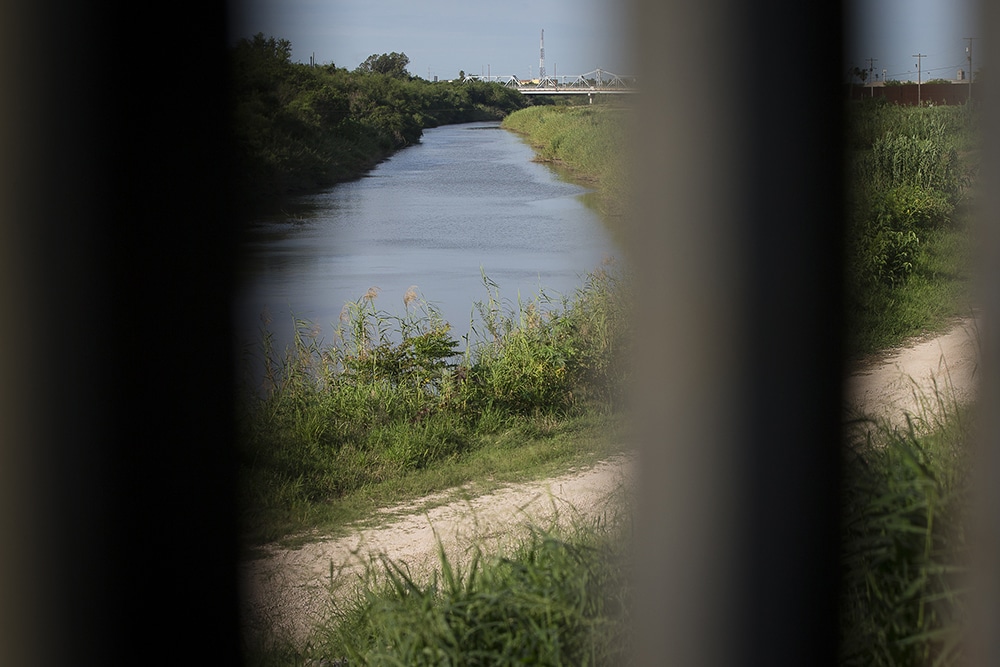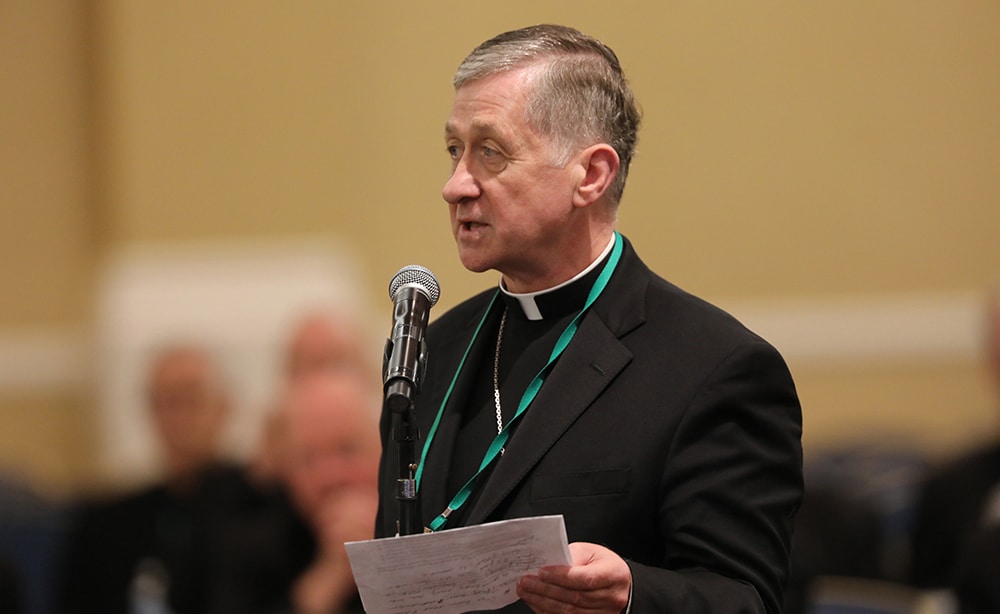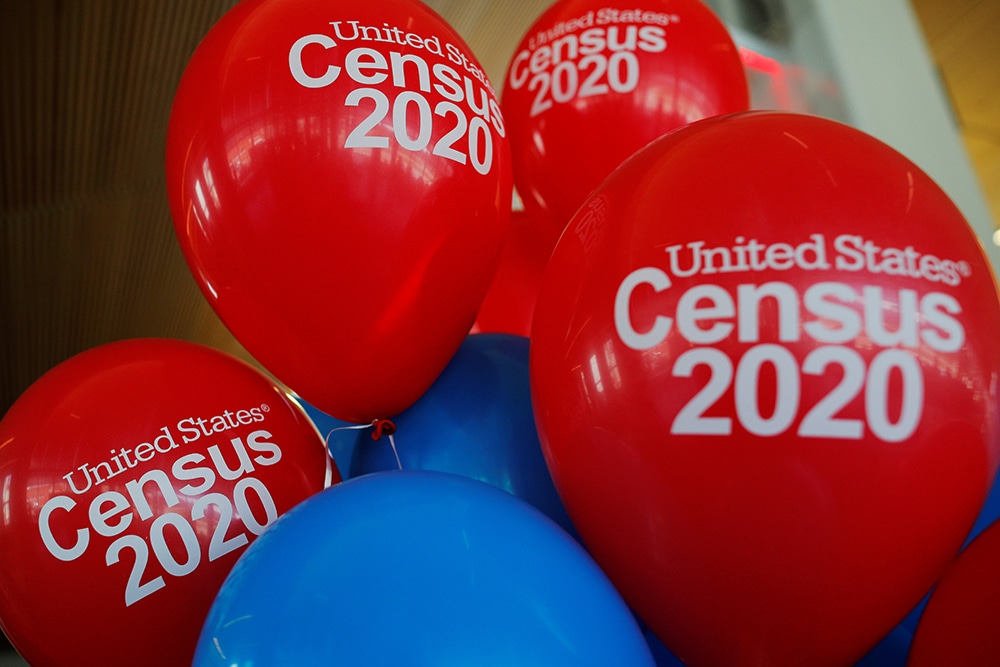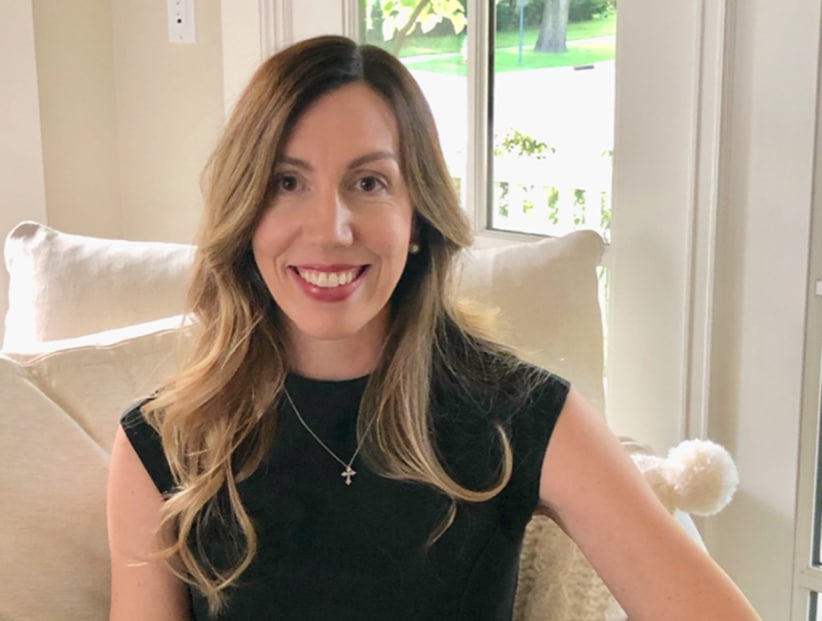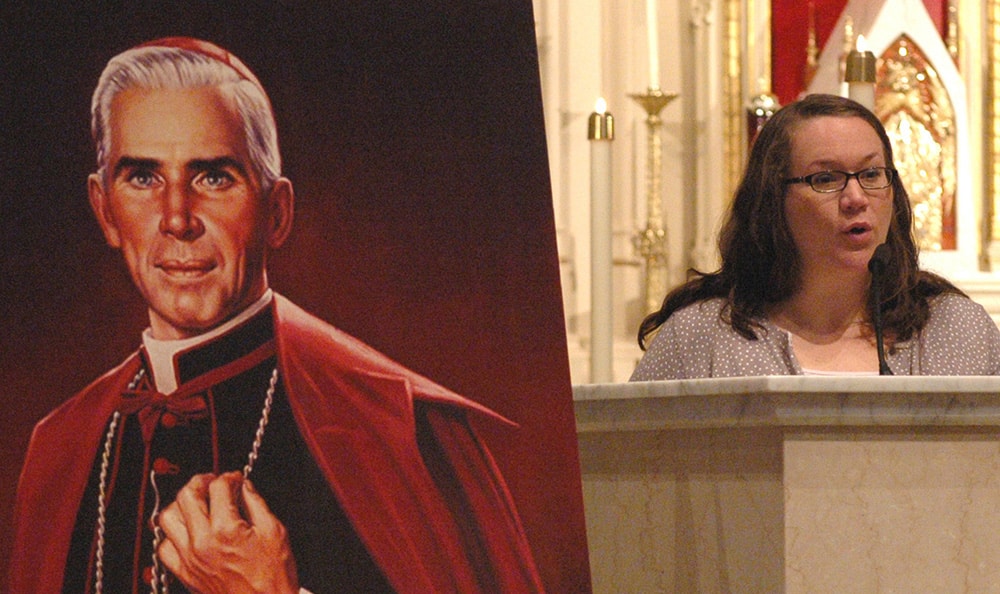From its picturesque beaches to its scenic valleys, bays, mountains and lush farmlands, California is one of the most environmentally diverse and dynamic places on earth.
But climate change is threatening the Golden State. In recent years, Californians have suffered from more frequent and intense wildfires, droughts and a diminishing water supply. A related lack of ecological concern and shortsighted land policies are harming the poor as urbanization swallows up more land and drives up homelessness and hunger.
“The bishops in the Central Valley are feeling particularly the impact of environmental degradation and pollution, and with California being the Number 1 agricultural state in the country, it’s a prominent issue,” said Archbishop Salvatore J. Cordileone of San Francisco.
Archbishop Cordileone told Our Sunday Visitor that California’s Catholic bishops decided to release a joint statement on the fourth anniversary of Laudato Si’ (“On Care for Our Common Home”), given the sense of urgency around the earth’s changing climate.
“I don’t think any serious scientists doubt that the earth is warming,” the archbishop said. “I think there may be some argument on the degree to which humans are causing it. … But I think everyone can agree we should respect the environment and be good to Mother Earth.”
On June 18, the California Catholic Conference released a 19-page pastoral statement, “God Calls Us All to Care for Our Common Home,” that offers a sweeping look at the various threats to the state’s many complex ecosystems.
Released four years after Laudato Si’, Pope Francis’ 2015 landmark encyclical on ecology, the California Catholic bishops’ statement challenges the Catholic community and all Californians “to contribute to the ecological well-being” of their state.
“The biggest challenge was trying to say something that was meaningful that was not just mimicking Laudato Si’, but was also meaningful and applied to California in a way that was concise,” said Franciscan Brother Keith Douglass Warner, the senior director of education and action research at the Miller Center for Social Entrepreneurship.
Brother Keith told OSV that the climate change issue bears a particular urgency “because we are failing to listen to the wisdom of Laudato Si’ and act on it.” Given the political gridlock in the nation’s capital, Brother Warner added that Washington, D.C., is in dire need of the “ecological conversion” first introduced by St. Pope John Paul II and expanded upon by Pope Benedict XVI and Pope Francis.
“There is a sense of urgency, because delaying the transition to more sustainable forms of energy consumption and production, and delaying the transition to a more sustainable and just economy, are exacerbating the sufferings of the poor and of the Earth,” Brother Keith said.
Diversity of creatures
The statement’s first section, entitled “A Canticle for California,” presents an overview of the state’s rich biodiversity and history.
“From the tectonic activity on the Ring of Fire, with unimaginable subterranean pressures lifting mountains, to rainfall and glaciers shaping our scenic valleys, beaches, bays and coastline — all contribute to our understanding of what it means to live in California,” the document says.
The bishops note that California is home to more species of animals and plants than any other state in the country. The bishops add that California’s landscape, climate, vegetation and the great diversity of its creatures “all give praise and glory to God by their very existence.”
“All Californians are called to read the book of nature, and thus learn the lessons of integral ecology,” the document adds.
Dan Misleh, the executive director of the Catholic Climate Covenant, a nonprofit that presents a Catholic voice in the national climate change discussion, told OSV that the California bishops hit the right notes in crafting the statement.
“They certainly gave it a lot of thought,” Misleh said. “I think in a place as beautiful as California, as well as the geography that is as varied as California’s, it’s an amazingly beautiful place that’s really being disrupted by climate change and other factors.”
The bishops note in their pastoral statement that over the state’s history, “many have exploited California’s riches for personal gain,” creating injustices that have degraded the environment and harmed its residents, especially indigenous and poor people. The bishops echoed Laudato Si’ in saying that on too many occasions, “We have failed the common good.”
“This statement, along with Laudato Si’, calls for a global imagination to think up what actions we need to embrace if we want to honor the planet as it was intended to be honored,” said Sister Sister Anne-Louise Nadeau, the interim executive director of Pax Christi USA.
Sister Nadeau told OSV that the California bishops effectively outlined how land-use developments and policies that at first seemed to be positive advancements were later proven to have disastrous effects for working people and the poor communities on society’s margins.
“They’ve written this very powerful, open, realistic and straightforward letter. But that’s all it is. A letter,” Sister Nadeau said. “At the end of the day, are folks going to say, ‘It’s the same-old, same-old, pie in the sky?’ I would hope not.”
Something everyone can do
In the statement’s second section, the California bishops challenge different groups to do their part in caring for God’s creation. Those they address include young adults, parents, teachers and catechists, as well as artists, public officials, business leaders and farmers.
“Just as California’s many ecosystems find expression in diverse beauty and bounty, there are many paths by which each of us might travel as we contribute to the renewal of our common home,” the bishops wrote.
“There’s something everyone can do,” Brother Keith said, adding that the bishops’ conference wanted to ensure that anyone, regardless of their state in life, could identify something they could do to contribute.
“There are all kinds of ways in which everyone can get involved,” Brother Keith said.
The bishops themselves pledged to work with pastoral leaders and Catholic institutions to explore opportunities to divest from fossil fuels, undertake environmental health and social initiatives and adopt renewable energy and water conservation practices. The bishops also said they would encourage the faithful to take the St. Francis Pledge, where they vow to pray, act and advocate for solutions to climate disruption, and to live out its tenets.
“After Laudato Si’ was issued, we had a Laudato Si’ summit here in the archdiocese to launch an effort to help our parishes to teach and implement it,” said Archbishop Cordileone, who added that the archdiocese has encouraged parishes to form “green teams” to incorporate green-energy practices.
Archbishop Cordileone said a few local parishes have installed solar panels and are using wind power for their energy needs. He added that a study day for priests will be organized to give pastors some practical tools for what they can do to foster the ecological conversion called for in Laudato Si’.
“God entrusted to his human creation, the stewardship of the earth,” Archbishop Cordileone said. “This is our common home. The earth is where we work out our salvation, live out our vocation and respond to God’s call to holiness by living faithfully our spirituality and stewardship in all ways, including the environment.”
Brian Fraga is an Our Sunday Visitor Contributing Editor.
| More about the St. Francis Pledge |
|---|
|
Marking the second anniversary of Pope Francis’ encyclical Laudato Si’ (“On Care for Our Common Home”), the Catholic Climate Covenant updated and launched the St. Francis Pledge. By taking the pledge, individuals commit to living out the vision of Laudato Si‘ and the Catholic faith through prayer, concrete action and advocacy. The encyclical calls for urgent action on climate change and the pope’s invitation to everyone on the planet to care for our common home. Visit catholicclimatecovenant.org for more information. |

